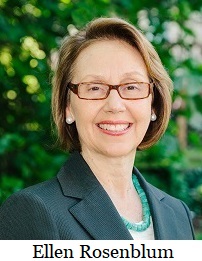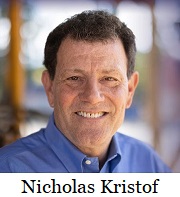





| Benton County Republicans’ Private Fundraising Event, “Bent-on Boots and Bling” with Trey Taylor |
| Friday, September 5, 2025 at 5:00 pm |
| Featuring Trey Taylor Music Private Event Friday, September 5, 2025 5:00-5:30 pm VIP Reception 5:30-8:00 pm Heavy Appetizers, Auction, Concert Red: $750 VIP Reception Front Row Table Sponsor White: $500 Table Sponsor Blue: $50 per person Limited Seating. Get Yours Now!!! Support Local Dress up: Bling, Cowboy, Patriotic Benton County Republican FUNDRAISER www.BentonGOP.org Get your tickets today at: https://www.bentongop.org/event-details/benton-county-republicans-fundraiser/form About Trey: Trey is the youngest African American Man in Country Music History. The Denver Post wrote "It's impossible to miss his enthusiasm. With a fondness for cowboy boots, gaudy colors and dazzling jewelry, Trey Taylor could stand toe to toe with any of the Pop, Country or even Rap contemporaries of his generation.“ |
| Trysting Tree Golf Club, 34028 NE Electric Rd., Corvallis |

 Article V, section 2, of the Oregon Constitution states that a candidate must be a “resident within†Oregon for the three years before the general election.
Article V, section 2, of the Oregon Constitution states that a candidate must be a “resident within†Oregon for the three years before the general election.
At issue is the definition of “resident within†Oregon. When the Constitution was written, residency meant domicile (living permanently) in Oregon. Contemporaneous legal definitions, case law, and even the own words of delegates at Oregon’s Constitutional Convention support this commonsense definition. This long-established standard was placed in the Constitution to ensure candidates had some stake in our state’s political and civic life. It’s clear they did not intend to allow a person to serve if they had been a permanent resident of another state during the years just before their election. The brief refers to this as the “domicile test."

Objective facts demonstrate that Mr. Kristof fails the domicile test. Until December 2020, Mr. Kristof’s primary residence — his legal domicile — was in New York. These facts include: Voting in New York from 1999 through the November 2020 election; Centering his professional and personal life in New York, where he owned a home he used as a base for his job at the New York Times, where he returned to after international travel, and where he enrolled his children in school; Maintaining a driver’s license in New York even though New York law only requires in-state licenses for permanent residents; and Paying income taxes in New York from 1999 to 2020. Based on all the facts before them, elections officials correctly determined Mr. Kristof did not meet the residency requirements to run for Governor of Oregon in 2022 and should not appear on the ballot.
Mr. Kristof makes three arguments for his inclusion on the ballot, but all fail to identify a workable standard that applies fairly to everyone. The Secretary’s brief states:1) [Mr. Kristof] repeatedly [invokes] his status as a “frontrunner†in the gubernatorial race, as a person who has raised millions of dollars, and as a person who has numerous supporters...Embedded in this “frontrunner†standard is [Mr. Kristof’s] argument that the Court should “let the voters decide.†But this court should strongly reject the implication that a person’s popularity, wealth, or political clout is relevant to whether they are “resident within†Oregon. The Elections Division and local elections officials apply the same rule to all candidates no matter how known or unknown they are, and regardless of how many residences they own, if they own a residence at all, or if they are houseless. Adopting the rule [Mr. Kristof] appears to propose would enable a grave injustice, in which “the voters decide†for well-resourced and well-connected candidates, and other candidates are held to a more exacting standard. (Page 31)
A D V E R T I S E M E N T

A D V E R T I S E M E N T
2) [Mr. Kristof] contends that a person who owns homes in multiple states could be “resident within†Oregon without being domiciled there. But that rule produces irrational results. It would allow a person to be elected Governor of Oregon while continuing to vote and live out of state. Even more counterintuitively, that person could run for Governor of two different states at the same time. Construing residency so broadly that it allowed those scenarios would undermine the reasons for adopting any residency requirement at all. (Page 31)
3) [Mr. Kristof also] suggests that he should be considered “resident within†Oregon because he feels a deep connection to the state … But no filing officer could ever make consistent, fair determinations about a candidate’s qualifications for office based on such subjective, transitory facts. (Page 32)
| Post Date: 2022-01-22 12:21:24 | Last Update: 2022-01-22 13:03:05 |